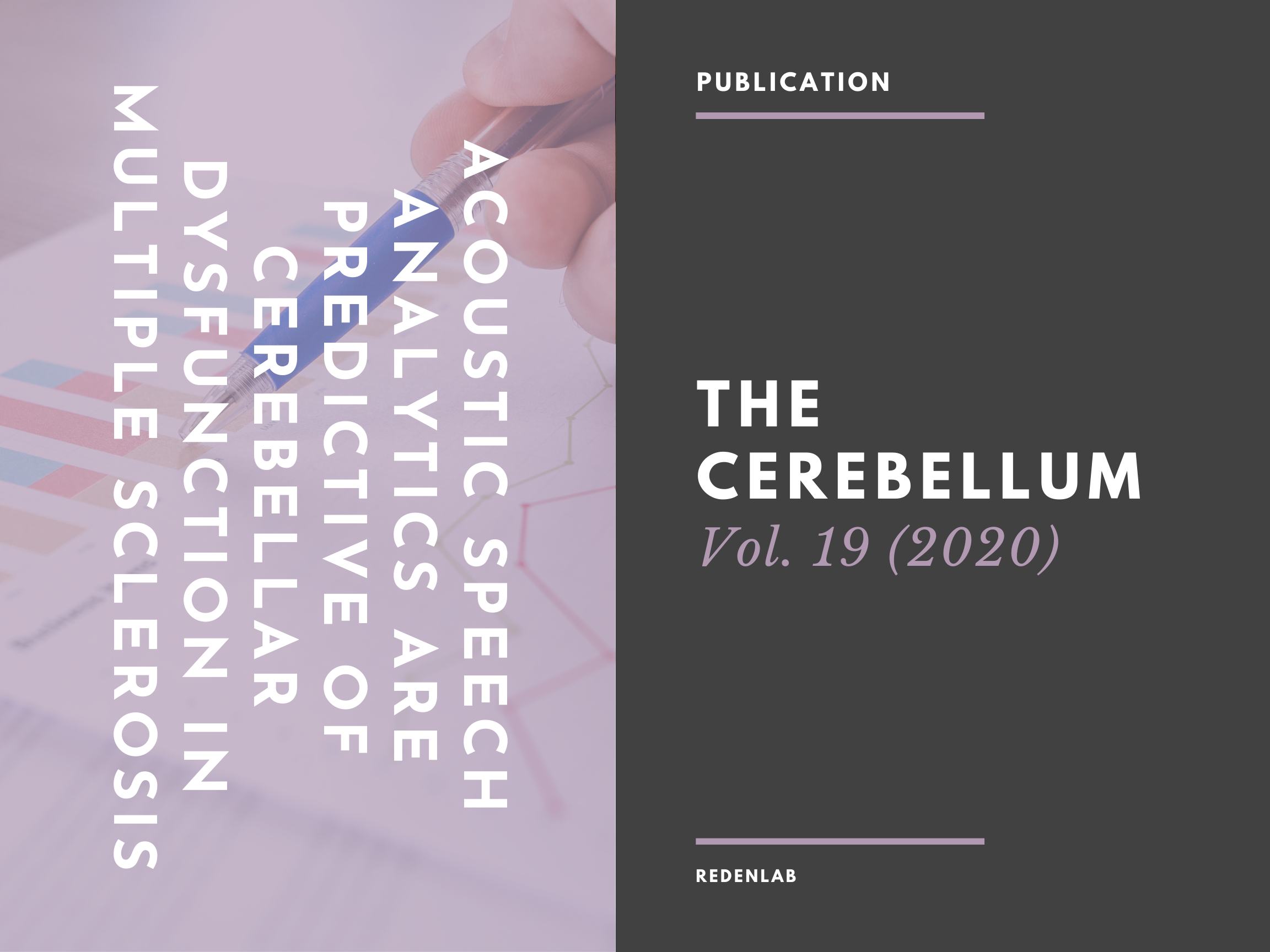Acoustic speech analytics are predictive of cerebellar dysfunction in multiple sclerosis

Speech production relies on motor control and cognitive processing and is linked to cerebellar function. In diseases where the cerebellum is impaired, such as multiple sclerosis (MS), speech abnormalities are common and can be detected by instrumental assessments. However, the potential of speech assessments to be used to monitor cerebellar impairment in MS remains unexplored. The aim of this study is to build an objectively measured speech score that reflects cerebellar function, pathology and quality of life in MS. Eighty-five people with MS and 21 controls participated in the study. Speech was independently assessed through objective acoustic analysis and blind expert listener ratings. Cerebellar function and overall disease disability were measured through validated clinical scores; cerebellar pathology was assessed via magnetic resonance imaging, and validated questionnaires informed quality of life. Selected speech variables were entered in a regression model to predict cerebellar function. The resulting model was condensed into one composite speech score and tested for prediction of abnormal 9-hole peg test (9HPT), and for correlations with the remaining cerebellar scores, imaging measurements and self-assessed quality of life. Slow rate of syllable repetition and increased free speech pause percentage were the strongest predictors of cerebellar impairment, complemented by phonatory instability. Those variables formed the acoustic composite score that accounted for 54% of variation in cerebellar function, correlated with cerebellar white matter volume (r = 0.3, p = 0.017), quality of life (r = 0.5, p < 0.001) and predicted an abnormal 9HPT with 85% accuracy. An objective multi-feature speech metric was highly representative of motor cerebellar impairment in MS.
Click here for more details
